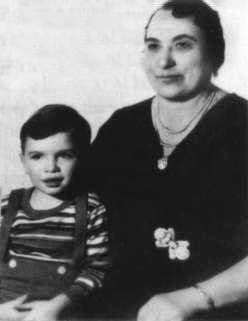Al Capone
Al Capone was a notorious American gangster who rose to fame during the Prohibition era in the United States. Born on January 17, 1899, in Brooklyn, New York, Capone was one of nine children. His parents were Italian immigrants, Gabriele and Teresa Capone. Despite his humble beginnings, Capone would go on to become one of the most infamous figures in American criminal history.
Early Life[edit | edit source]
Capone's early life was marked by typical immigrant struggles, but he was drawn to the life of crime early on. He joined the Five Points Gang in his youth, where he gained the nickname "Scarface," a moniker he despised, stemming from injuries he received in a bar fight. Despite his criminal activities, Capone was known for his charm and intelligence.
Rise to Power[edit | edit source]
In his early 20s, Capone moved to Chicago to take advantage of opportunities in the illegal liquor trade during Prohibition. He worked for gangster Johnny Torrio and eventually succeeded him as the head of the Chicago Outfit, which he expanded to include illegal brewing, distilling, and distribution of alcohol, along with gambling and prostitution.
Capone's method of maintaining his empire involved a combination of charm, generous donations to charity, and ruthless violence. His involvement in the Saint Valentine's Day Massacre, in which seven members of a rival gang were murdered, marked the peak of his notoriety, although he was never found guilty of this crime.
Legal Troubles and Conviction[edit | edit source]
Despite his criminal activities, Capone eluded conviction for many years due to a combination of jury tampering, intimidation, and a network of corrupt officials. However, the federal government began to intensify its efforts to convict him, focusing on tax evasion as the most viable method. In 1931, Capone was finally convicted of tax evasion and sentenced to 11 years in federal prison. He served part of his sentence at the then-new Alcatraz Federal Penitentiary, where his health declined due to syphilis.
Later Life and Death[edit | edit source]
Capone was released from prison in 1939 due to his deteriorating health and retired to his estate in Palm Island, Florida. He suffered from neurosyphilis, which led to his mental and physical decline. Al Capone died on January 25, 1947, at the age of 48.
Legacy[edit | edit source]
Al Capone's legacy is a complex one. On one hand, he is seen as a ruthless criminal who was responsible for countless murders and the corruption of public officials. On the other, he is sometimes romanticized as a modern-day Robin Hood figure, due to his charitable contributions and the public's fascination with his lifestyle during the Prohibition era. His life has been the subject of numerous books, films, and television shows, cementing his place in American popular culture.
Search WikiMD
Ad.Tired of being Overweight? Try W8MD's physician weight loss program.
Semaglutide (Ozempic / Wegovy and Tirzepatide (Mounjaro / Zepbound) available.
Advertise on WikiMD
|
WikiMD's Wellness Encyclopedia |
| Let Food Be Thy Medicine Medicine Thy Food - Hippocrates |
Translate this page: - East Asian
中文,
日本,
한국어,
South Asian
हिन्दी,
தமிழ்,
తెలుగు,
Urdu,
ಕನ್ನಡ,
Southeast Asian
Indonesian,
Vietnamese,
Thai,
မြန်မာဘာသာ,
বাংলা
European
español,
Deutsch,
français,
Greek,
português do Brasil,
polski,
română,
русский,
Nederlands,
norsk,
svenska,
suomi,
Italian
Middle Eastern & African
عربى,
Turkish,
Persian,
Hebrew,
Afrikaans,
isiZulu,
Kiswahili,
Other
Bulgarian,
Hungarian,
Czech,
Swedish,
മലയാളം,
मराठी,
ਪੰਜਾਬੀ,
ગુજરાતી,
Portuguese,
Ukrainian
Medical Disclaimer: WikiMD is not a substitute for professional medical advice. The information on WikiMD is provided as an information resource only, may be incorrect, outdated or misleading, and is not to be used or relied on for any diagnostic or treatment purposes. Please consult your health care provider before making any healthcare decisions or for guidance about a specific medical condition. WikiMD expressly disclaims responsibility, and shall have no liability, for any damages, loss, injury, or liability whatsoever suffered as a result of your reliance on the information contained in this site. By visiting this site you agree to the foregoing terms and conditions, which may from time to time be changed or supplemented by WikiMD. If you do not agree to the foregoing terms and conditions, you should not enter or use this site. See full disclaimer.
Credits:Most images are courtesy of Wikimedia commons, and templates, categories Wikipedia, licensed under CC BY SA or similar.
Contributors: Prab R. Tumpati, MD





